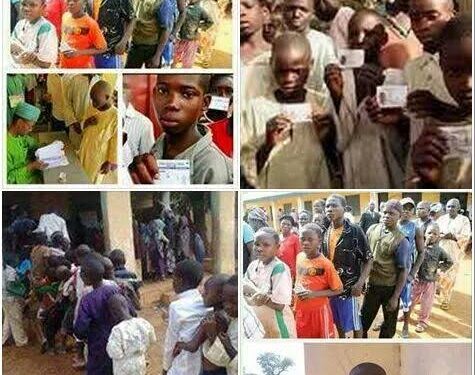The National Assembly Joint Committee on the Independent National Electoral Commission Matters has proposed a review of the provision in the Electoral Act which pegged the eligibility of a voter at 18 years.
The federal lawmakers have specifically recommended that INEC should consider any married girl who is not up to 18 years as eligible to vote.
The Chairman, Senate Committee on INEC, Senator Kabiru Gaya, and his counterpart in the House of Representatives, Aisha Dukku, tabled the proposal before the Technical Committee on Electoral Reform on Wednesday.

The technical panel which would work on the new Electoral Act being proposed by the National Assembly was made up of lawmakers, INEC officials and civil society groups dealing with election matters.
Both Gaya and Dukku at the inaugural session of the technical panel which also had in attendance, the INEC Chairman, Prof Mahmood Yakubu, said the proposal was a unanimous decision of the joint committee of the National Assembly.
Gaya said, “The joint committee has proposed a review of the section of the Electoral Act that pegged the eligibility age of voters at 18 years.
“The joint committee has proposed that if a lady who is not up to 18 years is married, she should be considered to be mature enough and be eligible to vote.”
Yakubu said the proposal was not yet before INEC and expressed doubts over whether it could fly because the country also has a constitutional age for marriage, which is 18 years.
Yakubu’s response did not go down well with Dukku, who immediately said the INEC boss should not have dismissed the proposal with a wave of the hand because the joint panel had adopted it.
She said, “It was one of the submissions on the day of the public hearing in the last Assembly that a married lady or a girl who is not up to 18 years should be considered as an eligible voter.
“It is already in the Electoral Act amendments submitted in the last Assembly; so it cannot be thrown away just like that.
“We should look at it and come up with something instead of throwing it away. It is not from us but from the stakeholders on the day of the public hearing held in the 8th Assembly.”
Another issue raised by the joint panel which they wanted the new Electoral Act to determine is whether the political party or candidate is the owner of votes cast on Election Day.
They cited the case of a Kogi State governorship election won by the late Abubakar Audu, who died before the results were announced, and that of the recent Imo North Senatorial Bye-Election where INEC declared the All Progressives Congress, which had no candidate as the winner.
The lawmakers argued that the candidate and not the party should be the beneficiary of the votes.
Yakubu said all the issues would be discussed at the technical session.
The Chairman, Senate Committee on Judiciary, Human Rights and Legal Matters, Opeyemi Bamidele, said the matter would be dealt with at the technical committee level where robust discussions on it would take place.
Bamidele also said the issue of defection should be addressed in the new Electoral Act that would spell out the conditions for those holding elective positions in the executive arm of government.
The INEC chairman pledged that the commission would work with the National Assembly committees on INEC to produce a brand new Electoral Act for the nation before the end of the first quarter of 2021.









